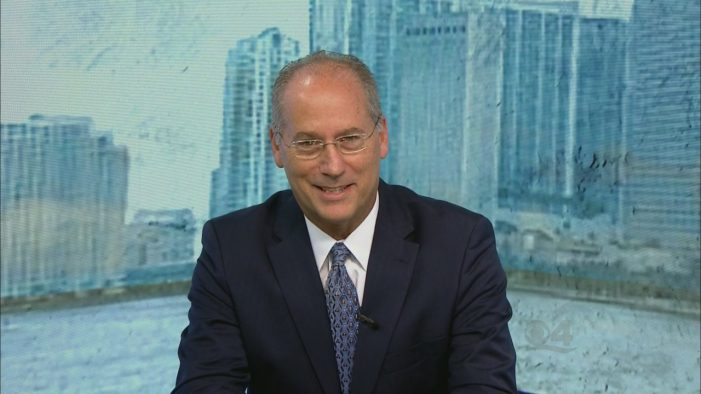The Miami Beach City Commission on Wednesday will consider putting a referendum question on the November ballot that would extend the mayoral term from two years to four.
Ah, power.
The resolution would also ask voters to change term limits from three two-year terms to two four-year terms, giving the position — and incumbent Mayor Dan Gelber — an addition al two years.
al two years.
The pro argument is that mayors don’t get to relax between elections. They are forced to campaign again immediately.
Or, rather, they would be, if they were to face a challenge. So far this year, Gelber — who has almost $200,000 in his campaign account collected since March — has two barely-there opponents who are no real threat. They may not even qualify.
But do voters really want the mayor to relax? Should they feel relaxed? Ladra doesn’t think so. That is not why he was hired/elected. This is not a day at the spa. This is not a pastime. This is a serious position of responsibility.
Read related: Amid Miami Beach chaos, Mayor Dan Gelber raises funds for race
And then, what does that do to the balance of power in the city?
Commissioners are elected every four years, but terms are staggered so it’s three commissioners every two years. If the mayor were elected with one of those groups, it would be easier for a faction (read: special interests) to get a  majority slate elected. And to keep the majority slate. When the mayor is elected with both groups, it’s easier for the voters to make changes when needed.
majority slate elected. And to keep the majority slate. When the mayor is elected with both groups, it’s easier for the voters to make changes when needed.
Case in point: Like the Beach, Coral Gables has a mayor elected every two years while four commissioners are elected every four. This allowed voters to dump three incumbents in 2001 for three newcomers and change the course of downtown development. If their mayor was elected every four years, they would not have been able to do that and Biltmore Way might be closed today.
Same thing goes for Miami Beach.
Read related: Two newbies challenge incumbent Ricky Arriola in Miami Beach
The board at Miami Beach United has voted to oppose this measure, citing the same reason. “If, in the opinion of the electorate, the City Commission is not serving the best interests of the City and its residents, voters should have the ability to change the leadership of the City Commission every 2 years, not less frequently,” an email blast says. “If this proposal were approved, the voters would only have that opportunity every 4 years.”
Expect Commissioner John Elizabeth Aleman, who is sponsoring this, to  say that it is simply to give voters the choice. “Let the voters decide,” is a favorite mantra for these self-serving referendums, but it’s disingenuous bullshit. Because once it is a ballot question, there will be interests to fund a “yes” campaign and not so much money for a “no” campaign. It shouldn’t even go on the ballot.
say that it is simply to give voters the choice. “Let the voters decide,” is a favorite mantra for these self-serving referendums, but it’s disingenuous bullshit. Because once it is a ballot question, there will be interests to fund a “yes” campaign and not so much money for a “no” campaign. It shouldn’t even go on the ballot.
If Aleman — who is not seeking re-election but is also proposing an increase in salaries for the commissioners — wants to make a real change in government, she should suggest making all commission seats open every two years so there can be a real sea change when there needs to be.
If we put that on the ballot, it would pass overwhelmingly.
Electeds should be made more accountable, not less. Maybe they would act differently if they knew they could be booted from office sooner.
But they will never try to shorten their terms. Because that gives the people the power, instead.

